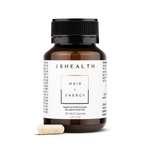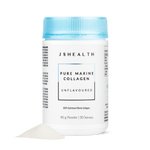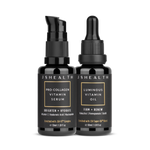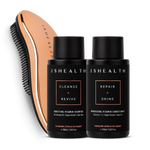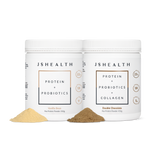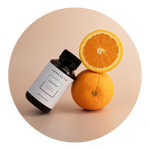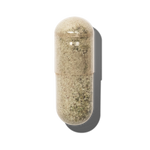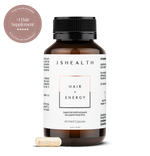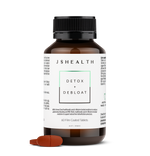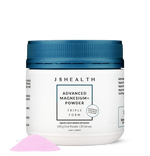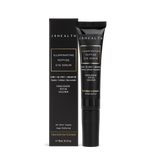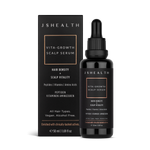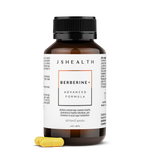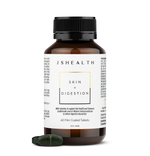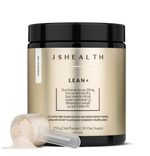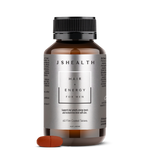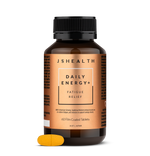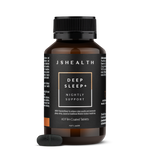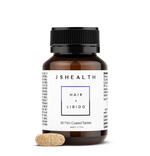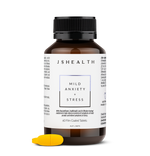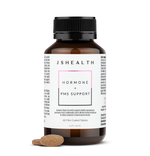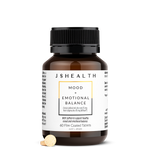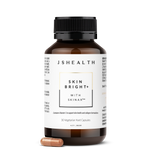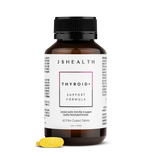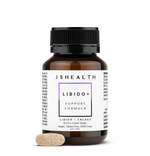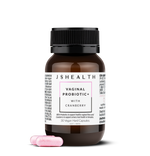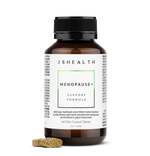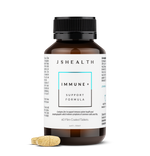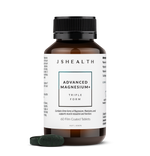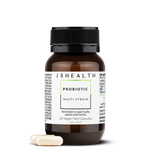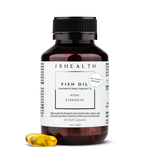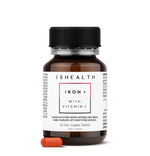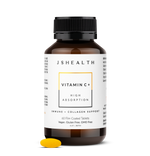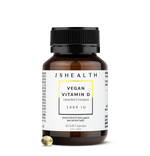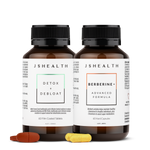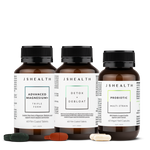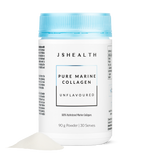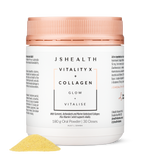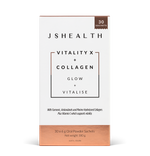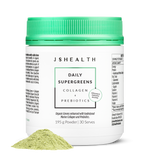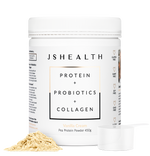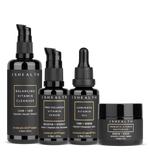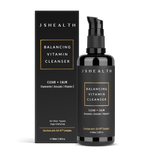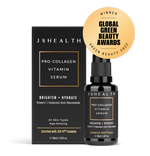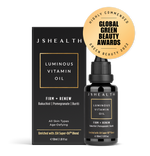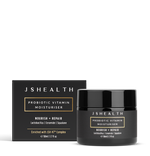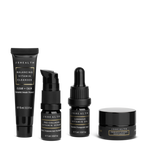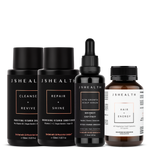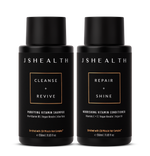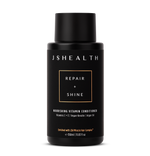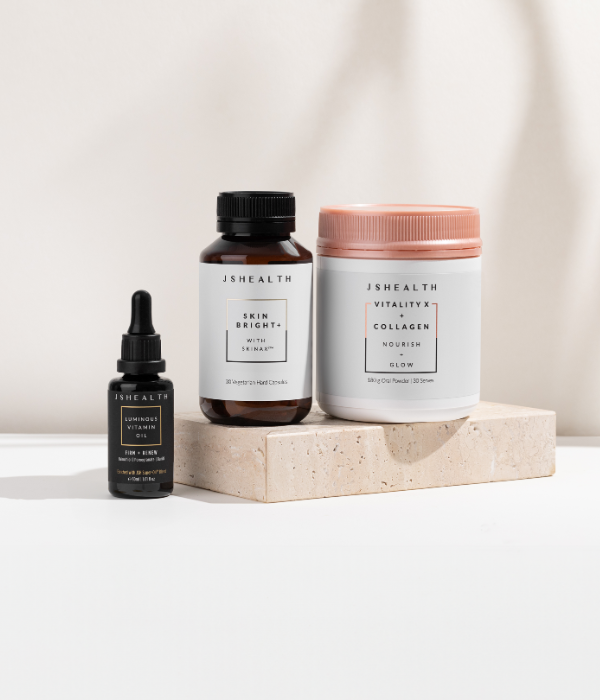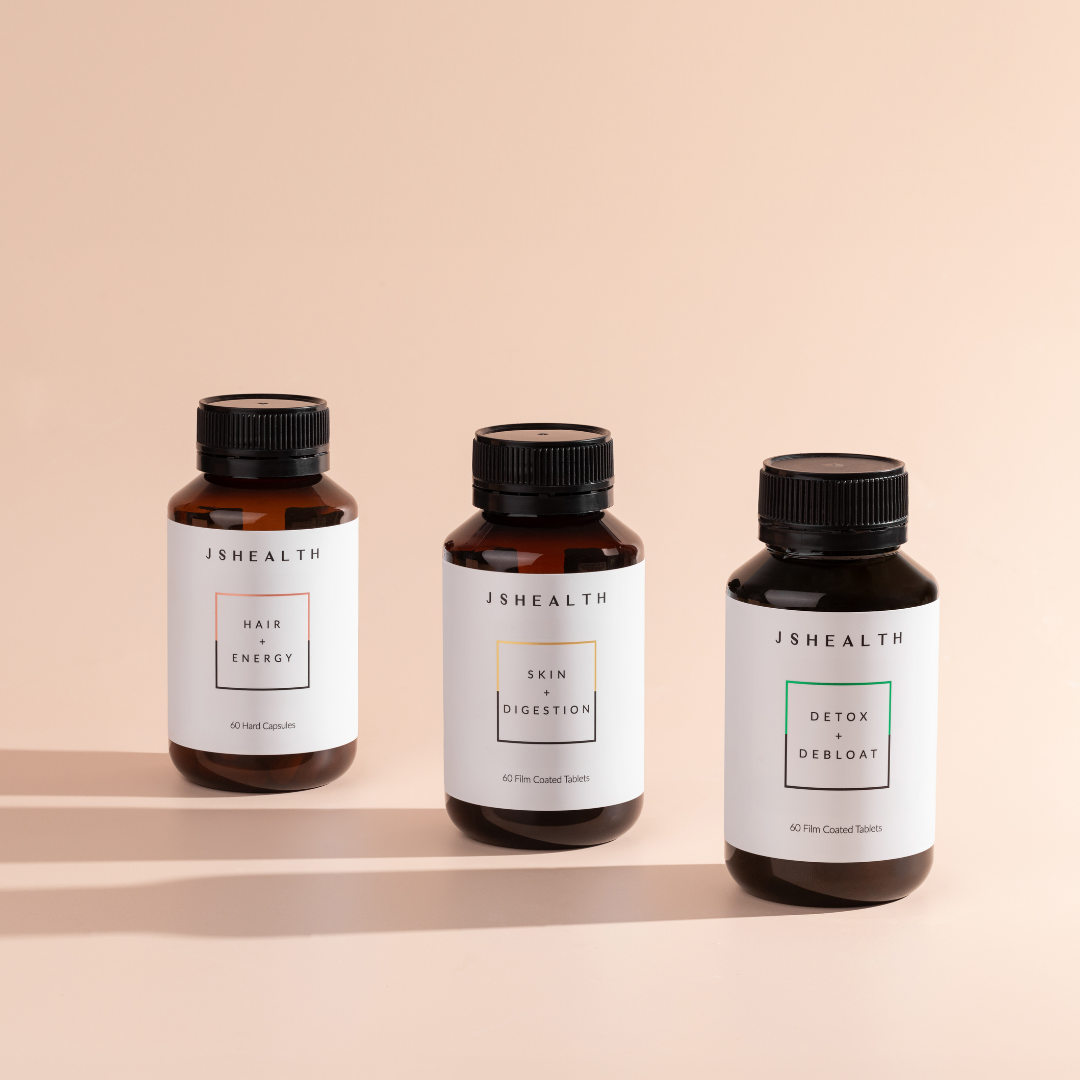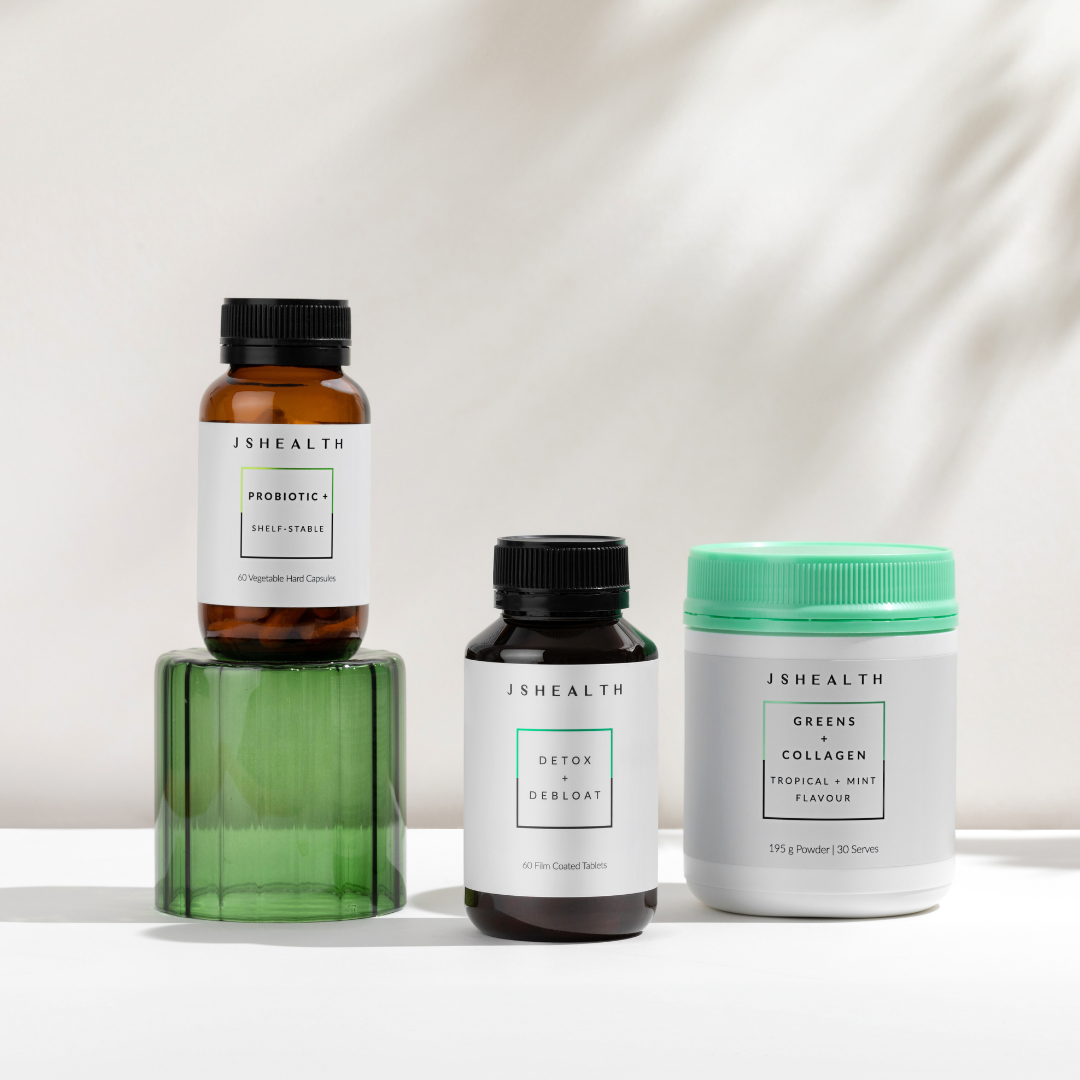Liver Love: 7 Ways Milk Thistle contributes to Liver Health
When it comes to living our best lives, we all seek natural ways to boost our wellbeing. And guess what? Mother Nature has a delightful secret up her sleeve — the amazing Milk Thistle (Silybum marianum)!
This botanical wonder has been around for ages, charming herbal enthusiasts and ancient healers with its liver-loving benefits. Modern science is just as enamoured with it too!
As we witness an alarming increase in conditions like liver disease, hepatitis, cirrhosis, and non-alcoholic fatty liver disease, it's clear that liver health needs our attention. Join us as we dive deeply into the potential benefits of this time-tested herbal remedy.
What Is Milk Thistle?
Milk Thistle is a striking plant adorned with purple flowers and prickly leaves. It's easy to mistake it for commonplace plants like chrysanthemums or marigolds, but it's worth noting the special characteristics of this unique flora.
For centuries, Milk Thistle has been recognised for its medicinal properties. From the ancient Greeks and Romans to modern scientists, this plant has attracted attention for its potential to support liver health, largely attributed to its key component, silymarin.
Silymarin, a mixture of flavonoids including silybin and silibinin, fuels milk thistle's liver-supporting prowess. Harvested from Milk Thistle seeds, silymarin is celebrated for its antioxidant properties, bolstering the defensive shield of liver cells against toxins, alcohol, and diseases.
Why Is Liver Health Important?
You may be asking, "Why should we prioritise liver health?" Well, as we touched on earlier, our liver is the primary detoxifier of our bodies. It's tasked with filtering toxins from the blood, producing bile necessary for digestion and regulating blood sugar levels.
Acting as an internal biochemical lab, it converts nutrients into essential blood components, stores vitamins and minerals and synthesises proteins and enzymes vital for bodily functions.
A critical aspect of liver health involves its role in maintaining our hormonal balance. By metabolising hormones such as oestrogen, it ensures hormonal equilibrium.
Importantly, liver health also encompasses the prevention of liver damage. Damage to this organ can lead to an increase in liver enzymes, which can, in turn, cause discomfort and illness. Thus, shielding our liver translates to overall better health.
While Milk Thistle is a powerful player in liver health, it's part of a larger health strategy. Balancing your diet, staying hydrated and regular exercise are all important parts of the equation. In addition, Milk Thistle stands in the ranks with other natural remedies like ragweed, amanita, and glutathione that support liver health.
What Are the 7 Main Benefits of Milk Thistle for Liver Health?
Let's explore the seven primary benefits that make Milk Thistle a wonderful wellness ally for your liver:
1. Antioxidant Properties
Foremost, Milk Thistle is lauded for its potent antioxidant properties. Antioxidants support the body’s natural defences against oxidative stress.
Silymarin, the active ingredient in milk thistle, is believed to support the body against the damage caused by these free radicals. This protective quality is a foundational reason Milk Thistle is recognised as a beneficial herb for the liver.
2. Tension Soothing
Milk Thistle also demonstrates a soothing effect on the liver. Its active compounds can help soothe tensions, maintaining gallbladder health and smooth digestion.
However, despite these benefits, it's important to note that breastfeeding mothers should consult their healthcare provider before incorporating Milk Thistle into their diet.
3. Liver Cell Support
Milk thistle isn't just about defence; it's about support, too. Silymarin has been shown to help support liver cells by forming a protective barrier against harmful substances. This is particularly crucial when the liver is under siege from toxins or diseases that might otherwise cause damage.
4. Potential Protective Effect Against Toxins
Notably, the effect of silymarin in Milk Thistle can support the body’s natural fight against various toxins, including those from alcohol and certain medications. This can be especially helpful for people whose liver function may be compromised due to prolonged exposure to toxins.
5. Blood Sugar Level Support
Research also indicates that Milk Thistle could play a role in maintaining healthy blood sugar levels, showing promise as a natural approach for supporting the liver in its role of glucose regulation. While promising, individuals should consult their healthcare provider before using Milk Thistle as a supportive measure for blood sugar control.
6. Possible Role in Managing Cholesterol
Milk Thistle's potential benefits extend to cholesterol management. Some studies suggest that the herb may aid in maintaining healthy cholesterol levels, contributing to overall liver health. It's important to note that these findings are preliminary, and more research is needed to fully understand this relationship.
7. Support in Insulin Resistance
Lastly, Milk Thistle appears to demonstrate supportive properties in the face of insulin resistance. While Milk Thistle cannot replace conventional treatments, it can be considered a potential adjunct supporter after consultation with a healthcare provider.
What Are the Potential Side Effects of Milk Thistle?
Like all medicinal herbs, Milk Thistlecomes with potential side effects that we must be aware of. While it's generally well-tolerated, certain individuals might experience gastrointestinal problems such as nausea, bloating, gas and upset stomach.
Headaches and allergic reactions are also possible, particularly in those who are allergic to plants in the same family, such as ragweed, marigolds, and chrysanthemums.
High doses of Milk Thistle can potentially lead to toxicity, resulting in more severe side effects.
Moreover, individuals with specific health conditions, such as hormone-sensitive conditions (including certain types of breast cancer), should exercise caution. Milk thistle may mimic the effects of oestrogen, which could potentially affect these conditions.
It's crucial to consult your healthcare provider before starting any new dietary supplement, including Milk Thistle. Through careful analysis of your health history and current medical conditions, they can guide you regarding the right dosage, potential drug interactions and any precautions you should take into account.
How Can We Incorporate Milk Thistle Into Our Wellness Routine?
Incorporating Milk Thistle into your wellness routine can be relatively straightforward. This powerful plant is available in various forms, from supplements to seeds, making it easy to find a format that suits your lifestyle.
Milk Thistle extract is a popular option, often available in capsule or tablet form and typically standardised to contain 70-80% silymarin. The extract form can be an efficient way to reap the benefits of Milk Thistle without having to consume large quantities of the plant.
Another way to incorporate Milk Thistle is by consuming its seeds, which can be ground and added to smoothies, yoghurt, or even baked goods. Alternatively, Milk Thistle tea can be a comforting way to enjoy the plant’s benefits.
Liquid extracts and tinctures are also available. These can be convenient for those who prefer not to swallow pills. Always remember to follow the dosing instructions on the product's label or as recommended by your healthcare provider.
While Milk Thistle supplements are a concentrated way to consume the plant, incorporating the whole plant into your diet could offer additional nutritional benefits. Just remember, it's not a magic bullet; its benefits are most potent when used as part of a holistic wellness routine, including a balanced diet and regular exercise.
The Bottom Line
Milk Thistle's benefits for liver health are extensive, from its antioxidant properties to its potential to soothe and protect liver cells. However, it's essential to consider this herbal supplement as part of a complementary approach to maintaining liver health, not a standalone solution.
While Milk Thistle can provide support for the liver, we must remember to give our liver support from all angles through a nutritious diet, regular exercise, and avoiding harmful substances like excessive alcohol.
Milk Thistle, with its potent active ingredientsilymarin, could be a helpful addition to your wellness routine, providing targeted support to one of our most hardworking organs — the liver.
As we strive to care for our liver and overall health, remember that holistic wellbeing isn't achieved overnight but through consistent, balanced and caring lifestyle choices. Let's raise a glass (of Milk Thistle tea, perhaps?) to that.
Sources:
Preventable Liver Disease Is Rising: What You Eat — and Avoid — Counts | Harvard Health
Milk Thistle: Early Seeds of Potential | PMC
“Silymarin”, a Promising Pharmacological Agent for Treatment of Diseases | PMC
How Does the Liver Work? | NCBI Bookshelf
Elevated Liver Enzymes: What Is It, Causes, Prevention & Treatment | Cleveland Clinic
5 Ways to Be Kind to Your Liver | Johns Hopkins Medicine
Free Radicals, Antioxidants in Disease and Health | PMC
Hepatoprotective Effect of Silymarin | PMC
The Therapeutic Potential of Milk Thistle in Diabetes | PMC
Milk Thistle can Help Lower Cholesterol Naturally | Houston Chronicle
Silymarin Is an Ally Against Insulin Resistance: A Review | ScienceDirect
